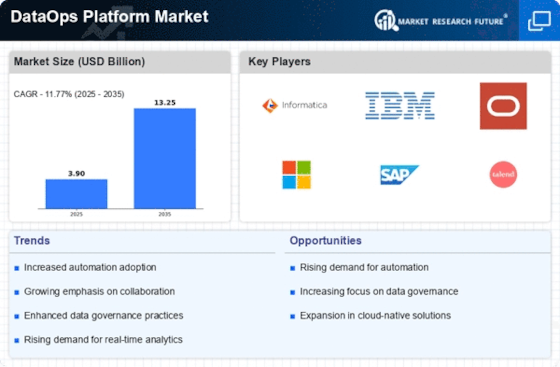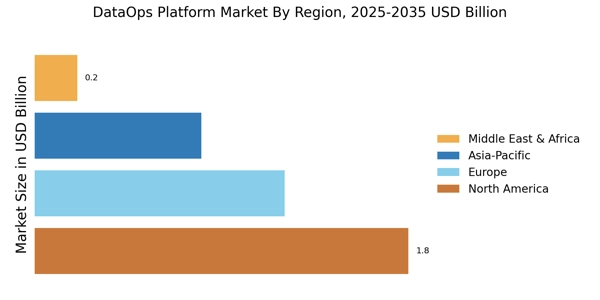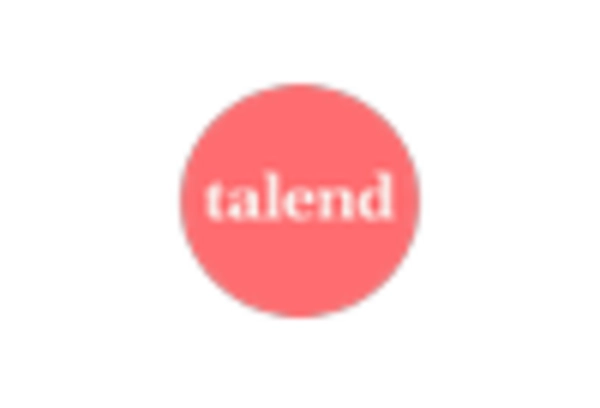Rising Demand for Real-Time Data Processing
The DataOps Platform Market is experiencing a notable surge in demand for real-time data processing capabilities. Organizations are increasingly recognizing the necessity of timely data insights to drive decision-making and enhance operational efficiency. According to recent estimates, the market for real-time data analytics is projected to grow at a compound annual growth rate of over 30% in the coming years. This trend is largely driven by the proliferation of IoT devices and the need for businesses to respond swiftly to market changes. As a result, DataOps platforms that facilitate seamless integration and processing of real-time data are becoming essential tools for organizations aiming to maintain a competitive edge.
Increased Regulatory Compliance Requirements
The DataOps Platform Market is also being shaped by the rising tide of regulatory compliance requirements. Organizations are facing heightened scrutiny regarding data privacy and security, necessitating the implementation of robust data governance frameworks. Recent legislative developments, such as the introduction of stricter data protection laws, have compelled businesses to adopt DataOps solutions that ensure compliance. This trend is likely to drive significant growth in the DataOps market, as organizations seek platforms that can provide comprehensive audit trails and facilitate adherence to regulatory standards, thereby mitigating risks associated with non-compliance.
Shift Towards Agile Data Management Practices
The DataOps Platform Market is witnessing a shift towards agile data management practices, reflecting a broader trend in the business landscape. Organizations are increasingly adopting agile methodologies to enhance their data operations, enabling faster iterations and improved responsiveness to changing business needs. This shift is supported by the recognition that traditional data management approaches often hinder innovation and adaptability. As a result, DataOps platforms that promote collaboration, automation, and iterative development are becoming essential for organizations aiming to thrive in a dynamic environment. This trend is expected to drive substantial growth in the DataOps market as businesses seek to optimize their data workflows.
Growing Importance of Data Quality and Accuracy
In the DataOps Platform Market, the emphasis on data quality and accuracy is becoming increasingly pronounced. Organizations are beginning to understand that high-quality data is foundational for effective analytics and decision-making. A recent survey indicates that nearly 80% of organizations cite data quality as a critical factor in their data strategy. This growing awareness is prompting investments in DataOps platforms that offer robust data validation and cleansing features. By ensuring that data is accurate and reliable, organizations can enhance their analytical capabilities and drive better business outcomes, thereby reinforcing the demand for sophisticated DataOps solutions.
Expansion of Machine Learning and AI Integration
The integration of machine learning and artificial intelligence within the DataOps Platform Market is gaining momentum. As organizations strive to leverage advanced analytics, the need for platforms that can seamlessly incorporate AI and machine learning algorithms is becoming apparent. Current projections suggest that the AI market will reach a valuation of over 500 billion dollars by 2024, which underscores the potential for DataOps platforms to facilitate this integration. By enabling organizations to automate data workflows and enhance predictive analytics, these platforms are positioned to play a pivotal role in the evolution of data management practices.

















